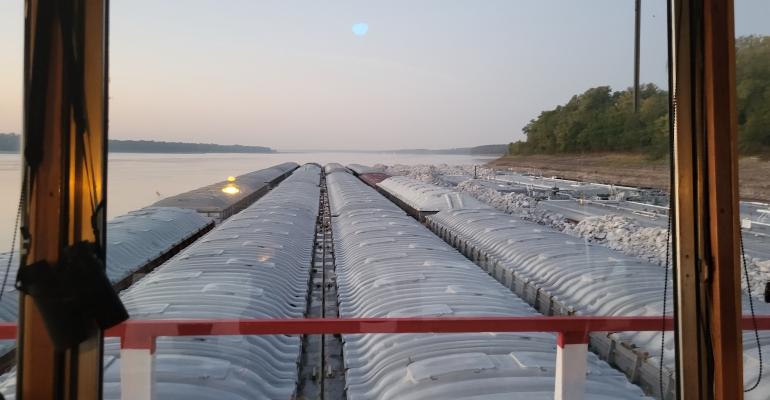What do you mean when you say “port”?
On a recent trip to Gulfport Mississippi for the CFIRE-sponsored LTT Symposium, we had the opportunity to tour area port facilities. Our tour included both an airport at Biloxi, Mississippi and the Port of Gulfport. As we often think of ports–be they rail facilities, inland river ports, Great Lake ports or coastal ports–we tend to think of bulk grain and steel or project cargo or–in the case of rail–intermodal containers. We also often first think of inland ports typified by the FEDEX hubs and air transportation, and the warehouse and logistics centers that are developing across the country,
As intermodal centers, ports of any variety can and likely should expand their horizons to innovate and attract and retain customers with relevant facilities and services. Of note on our tour along the South Mississippi Defense corridor are the development of warehousing, port facilities, and innovative technologies to serve logistics. And these development efforts include more than the traditional logistics facilities and services. These ports offer a variety of technology-driven, value-added services. In the photos below, take a look at the x-ray exit gate technology at the Port of Gulfport, and the cool blue technology at the Biloxi airport. When you consider the efforts in Mississippi to develop and secure business, think about how our regional facilities can adapt and succeed in the next twenty years. Yes, there will be the cornucopia of Mid-America region’s grain to push through our ports, but can we capture imports and new business expansion at our ports and intermodal centers? And what services does a port of the future need to provide to compete?
Gieger counter to ensure safety at Gulfport-Biloxi International Airport at the $5 million food irradiation facility.
Twenty-two feet of water protect you from a cobalt blue “test-tube like array of cobalt”. This food irradiation facility is part of the $12 million cargo warehouse. The irradiation process can be used to keep imported flowers fresh for weeks, and to destroying the nasty Vibrio bacteria in oysters.
The irradiation tank. Products are lowered into the chamber in the metal boxes and irradiated.
The container and gantry system used to move commodities through the irradiation process.
More radiation? This time a truck is scanned or X-rayed to check incoming loads of bananas for any suspicious cargo or potential nuclear hazards.
Cranes at the Port of Gulfport.






